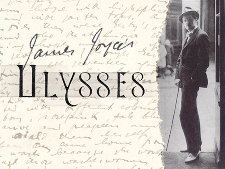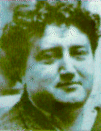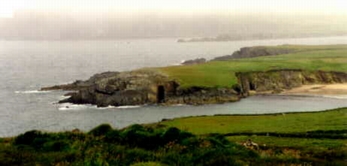Boys
from the County Hell
(Shane MacGowan)
"My daddy was a blue shirt and my
mother a madam
And my brother earned his medals at My Lai in
Vietnam"
"Blue
shirts," the name echoing the "brown shirts" of Hitler's
Nazis and the "black shirts" of the British and Italian
fascists, was the popular name in Ireland for the Army
Comrades Association (formed on 9 February 1932), a haven
for Irish fascists and sympathizers. In the Spanish Civil
War they formed the bulk of the Irish contingent (about 700
men) fighting on the side of Franco and the fascists (who
also wore blue uniforms) led by the founder of the ACA, Eoin
O'Duffy (for Irish fighting on the Republican side of the
war, see the reference to Frank
Ryan who appears in
"Sick
Bed of Cuchulainn"). Although not
nearly as violent or "successful" as their German models,
the Irish blueshirts gained a reputation for street
hooliganism. They were an active force in Irish politics
from about 1933 through the Second World War, with the group
ultimately evolving into Fine Gael, one of the two major
parties in contemporary Irish politics today. See R.F.
Foster, 1988. Modern Ireland (New York:
Viking).
"My
Lai " was an infamous massacre
conducted in March 1968 by U.S. forces upon the men, women,
and children who lived in the Vietnamese village of My Lai.
A platoon of the 23rd Infantry Division under the leadership
of Lieutenant William Calley murdered at least 300
Vietnamese civilians. Calley was subsequently court
martialed for his role in the massacre and sentenced to life
at hard labor. He was spared the bulk of the prison time
when that great champion of justice, President Richard M.
Nixon, inteceded on his behalf. See Stanley Karnow, 1983.
Vietnam (New York: Viking); and Neil Sheehan, 1988.
A Bright Shining Lie (New York: Random House). The
lyrics printed in the "Poguetry" collection use the line
"raping gooks in Vietnam," with "gooks" being American slang
for the Vietnamese. Ken wrote (thanks!) to note that the
word has its origins in yet another American military
adventure in Asia -- the Korean War (1950-1953). In the
Korean language, "gook" translates roughly as "country," so
that, in the Korean language, Korea the country is called
"Han-gook," China is "Jung-gook", England is "Yung-gook" and
the US is... "Mi-gook," pronounced as the note in the scale
(you know, "doe-re-mi-fa-sol-la-ti-doe). American troops
just off the boat heard the Korean greeting of "Mi-gook!
Mi-gook" ("Americans! Americans!") as broken english and
started refering to all Koreans as gooks. This eventually
mutated into GI slang for Asians of any kind.
The basic tenor of these lines --
the listing of a pathological pedigree, to use Dana's phrase
-- also has roots in traditional Irish music. For instance,
in "The
Cobbler" we get:
Oh me father was hung for
sheep stealing
Me mother was burned for a witch
Me sister's a dandy housekeeper
And I'm a mechanical switch
Click the link for a window with
the full lyrics. Thanks Dana for the heads up on this one.
Thanks to Dan for pointing out an error in my description of
My Lai (Calley was with the U.S. Army, not the U.S.
Marines).
|



 .
. (1923-1964),
noted Irish playwright and author. His best known works are
probably the autobiographical Borstal Boy (1958) and
his plays The Hostage (1958) and The Quare
Fellow (1959). His plays were performed to wide acclaim
in London, New York, and Paris. He was also a left wing
(i.e., socialist), republican (Irish) political activist. He
was arrested by the British in 1939 for his role in an IRA
Liverpool bombing and was sentenced to three years in jail.
He was later deported back to Dublin, where, in March of
1942 he shot a police officer during commemoration
ceremonies marking the 1916 rising. He went on the run and
was eventually arrested in June of 1942 (despite standing
orders that he be shot on sight). He was subsequently
sentenced to 14 years for the shooting, but was released as
part of a political amnesty in 1946. In 1947 he was again
arrested in Britain for violating the terms of his
deportation (namely, he returned to Britain). His great
success as a playwright followed shortly thereafter and he
rode a wave of popularity and critical acclaim throughout
much of the 1950s and early 1960s. Unfortunately, he died of
causes related to his alchoholism following several
unsuccessful treatment programs. He received a republican
burial in 1964 (also see "
(1923-1964),
noted Irish playwright and author. His best known works are
probably the autobiographical Borstal Boy (1958) and
his plays The Hostage (1958) and The Quare
Fellow (1959). His plays were performed to wide acclaim
in London, New York, and Paris. He was also a left wing
(i.e., socialist), republican (Irish) political activist. He
was arrested by the British in 1939 for his role in an IRA
Liverpool bombing and was sentenced to three years in jail.
He was later deported back to Dublin, where, in March of
1942 he shot a police officer during commemoration
ceremonies marking the 1916 rising. He went on the run and
was eventually arrested in June of 1942 (despite standing
orders that he be shot on sight). He was subsequently
sentenced to 14 years for the shooting, but was released as
part of a political amnesty in 1946. In 1947 he was again
arrested in Britain for violating the terms of his
deportation (namely, he returned to Britain). His great
success as a playwright followed shortly thereafter and he
rode a wave of popularity and critical acclaim throughout
much of the 1950s and early 1960s. Unfortunately, he died of
causes related to his alchoholism following several
unsuccessful treatment programs. He received a republican
burial in 1964 (also see "
 O'Brien (writing under the pseudonym "Myles na Gopaleen")
includes an account of "Hunger-stack," a mountain whose
summit had a cave with not one but two streams of whiskey;
one of which flowed freely and provided sustenance, while
the other was afire and provided warmth and light in the
cave. The protagonist of the novel -- a desperately poor
gaelic-speaking man -- scales the mountain during a brutal
windswept storm in search of gold coins alleged to have been
taken there some years earlier by another desperate
irishman. The novel is a pretty funny farce, full of
allusions to other gaelic stories, so I'm not certain if the
idea is original to O'Brien or is itself from some earlier
tale.
O'Brien (writing under the pseudonym "Myles na Gopaleen")
includes an account of "Hunger-stack," a mountain whose
summit had a cave with not one but two streams of whiskey;
one of which flowed freely and provided sustenance, while
the other was afire and provided warmth and light in the
cave. The protagonist of the novel -- a desperately poor
gaelic-speaking man -- scales the mountain during a brutal
windswept storm in search of gold coins alleged to have been
taken there some years earlier by another desperate
irishman. The novel is a pretty funny farce, full of
allusions to other gaelic stories, so I'm not certain if the
idea is original to O'Brien or is itself from some earlier
tale.
